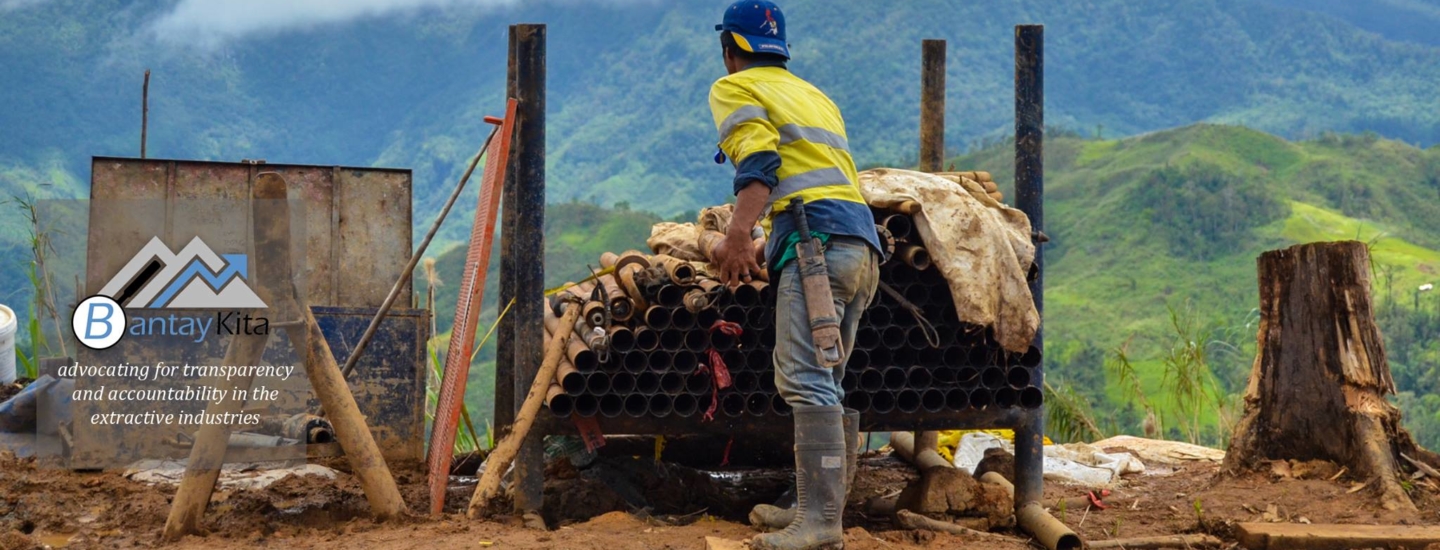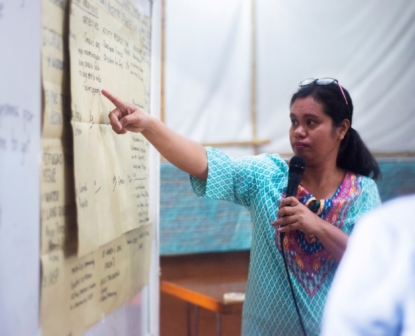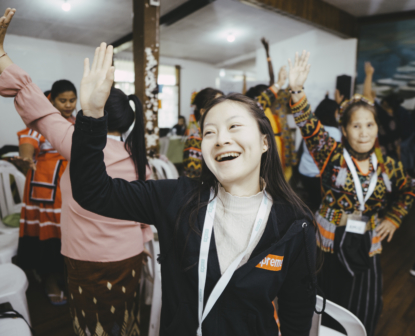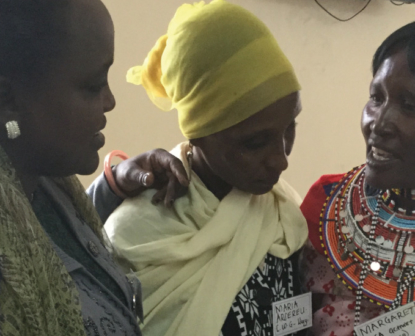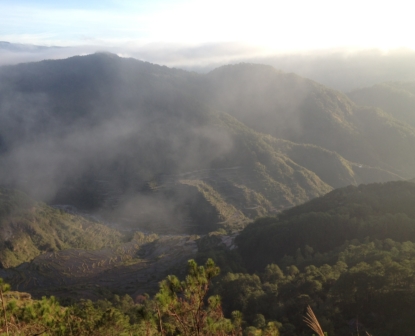Project
Claiming Political Space
-
Amount Funded
198,805 EUROProject Duration
01 Aug 2017 - 31 Jul 2019 -
-
Lead organisation
-
Bantay Kita is a strong coalition of civil society organisations advocating for transparency and accountability in the extractive industry. It is an local affiliate of the global Publish What You Pay Coalition, and engages in the Extractive Industries Transparency Initiative (EITI). It envisions empowered communities that promote sustainable development and good governance of natural resources. BK has four mandates:
- research
- policy and advocacy
- capacity building
- outreach/coalition building
-
Organisation
Bantay Kita is a strong coalition of civil society organisations advocating for transparency and accountability in the extractive industry. It is an local affiliate of the global Publish What You Pay Coalition, and engages in the Extractive Industries Transparency Initiative (EITI). It envisions empowered communities that promote sustainable development and good governance of natural resources. BK has four mandates:
- research
- policy and advocacy
- capacity building
- outreach/coalition building
-
Project
Bantay Kita’s project, Claiming Political Space: Amplifying the Voice of Indigenous Peoples (IP) in Minerals Management, strengthens the participation of IP communities in managing and monitoring the proceeds from extractive industries that are meant to contribute to the socio-economic development of the IP community. It runs for two years and works with 15 Indigenous Peoples Organisations (IPOs): eleven in Mindanao, and four in Luzon. These organisations are supported in developing a Community Royalty Development Plan (CRDP) that serves as a roadmap for allocation and spending of royalties. The project also works with government partners, the National Commission on Indigenous Peoples (NCIP) and concerned local government units (LGUs). This project builds on the work that Bantay Kita has been doing with IPs. In 2015, Bantay Kita co-organised a National IP Conference on Mining Concerns where the IPs expressed their aspiration to establish a coalition that champions their concerns and serves as a platform for engagement in state-sanctioned mining oversight bodies. They requested Bantay Kita to facilitate this ambition, and BK committed. Since then, BK has intensified its outreach programmes with IPs in Mindanao.
-
Bantay Kita’s project, Claiming Political Space: Amplifying the Voice of Indigenous Peoples (IP) in Minerals Management, strengthens the participation of IP communities in managing and monitoring the proceeds from extractive industries that are meant to contribute to the socio-economic development of the IP community. It runs for two years and works with 15 Indigenous Peoples Organisations (IPOs): eleven in Mindanao, and four in Luzon. These organisations are supported in developing a Community Royalty Development Plan (CRDP) that serves as a roadmap for allocation and spending of royalties. The project also works with government partners, the National Commission on Indigenous Peoples (NCIP) and concerned local government units (LGUs). This project builds on the work that Bantay Kita has been doing with IPs. In 2015, Bantay Kita co-organised a National IP Conference on Mining Concerns where the IPs expressed their aspiration to establish a coalition that champions their concerns and serves as a platform for engagement in state-sanctioned mining oversight bodies. They requested Bantay Kita to facilitate this ambition, and BK committed. Since then, BK has intensified its outreach programmes with IPs in Mindanao.
-
Bantay Kita, a staunch advocate of demanding transparency and accountability from extractive industries accomplished their project hand in hand with the indigenous communities and local government offices they worked with. Together, they worked on the ultimate goal of strengthening the indigenous communities’ capacities in managing and monitoring proceeds from extractive industries. The National Commission on Indigenous Peoples (NCIP), local governments, the indigenous cultural communities that Bantay Kita had worked with consistently have expressed that the process of crafting their Community Royalty Development Plan (CRDP) through the capacity building sessions and activities have helped them assert and demand accountability to both government and industry, increased their appreciation of related policies in minerals management such as the Mining Act of 1995 and the Indigenous People’s Right Act (IPRA), and changed perspective in community planning from ‘selective’ to ‘inclusive IP community upliftment’. Through the project workshops, writeshops, and capacity building, the indigenous peoples have remarkably increased their knowledge in managing their ancestral domain. The indigenous peoples have been able to identify and prioritize projects that address their development needs as a community. As an output of the workshops and capacity building provided, each indigenous community was able to draft their CRDP.
The project was also able to impart the principles of transparency and accountability to the indigenous communities without impeding to their customary law. Chieftains or leaders of the community have realized that reporting or transparency of projects within the community should be done, and the leaders or people who are responsible in managing (ancestral domain/royalties) should be accountable for any mismanagement of funds/royalties. The transparency and accountability mechanisms were included in their CRDPs. Additionally, putting to heart how they saw the value of Linking & Learning, Bantay Kita also conducted a Linking and Learning Session for all its partners from Luzon and Mindanao. They decided to pursue a Linking and Learning Session to create a practice of sharing and learning between indigenous cultural communities even with different cultures, and customary beliefs i.e. decision-making mechanisms. The indigenous cultural leaders/communities were able to share their insights and learnings on how the project (crafting their Community Royalty Development Plan) helped them and their community in natural resource management.
See an example here: https://drive.google.com/file/d/1xAc-hYkpY0gA9HkWCuC-bjiv9cFtwtcE/view
Quote
“The leaders of the indigenous cultural communities were very grateful for the project because it helped them to be more knowledgeable on royalty payments, wealth management, and ancestral domain management. With this, they are able and will be able to assert their rights, and demand accountability to both government and mining industry.
Here is an example testimony from one of the IP partners, he said that “Yakatabang sang kanami pagdumala sang Ancestral Domain kahatag sang pagkaisa aw pagsalig,” in English, “The trainings that were given to us have helped us manage our ancestral domain, and it helped us establish trust (among the community) and confidence”.
Links to outputs
A reflection blog from one of the Bantay Kita Project Team members:
A blog contribution around Data for Rights:
https://voice.global/blog/data-for-rights/
-
News

